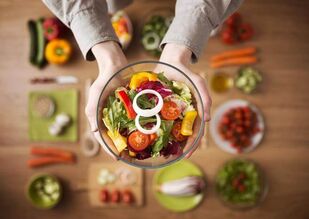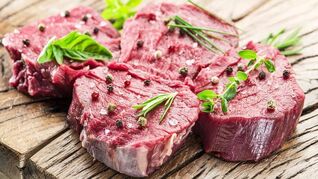Japanese cinema and animation impress with its original atmosphere, fantastic images, incredible beauty and subtlety of Japanese women. The Japanese are known as the most delicate people in the world. The secret lies not only in a lean national character, but also in the norm of portions and a healthy diet. Only the name "Japanese diet" is interesting. What does it take to become a fragile geisha? Let's understand!
The reason for naming the Japanese diet may not be clear, but the results of the approach are impressive - you can lose 4-8 kg in two weeks, depending on your initial weight. One source says that this approach was developed in one Tokyo clinic, while another says that the transparency of rules and dietary rules provides a clear way to achieve this goal. Those who try will be rewarded - reminiscent of the samurai way.
The 14-day Japanese diet (original version) is known all over the world, the list of products is available and mild. Japanese nutritionist Naomi Moriyama claims that low-carbohydrate foods and medium portions help maintain youth and longevity.

According to Moriyama's research statistics, the Japanese people consume 25% fewer calories than other nations. The use of fatty foods, fatty foods and butter on an industrial scale is not popular in the country. Healthy food and small portions are the hallmarks of Japanese culture.
This principle applies to the menu of the Japanese diet for 7 days or 2 weeks, despite the differences in ingredients with the diet of the inhabitants of the country of the rising sun.
In this article we will analyze:
- principles dictated by the Japanese diet for weight loss;
- advantages and disadvantages of the approach; Japanese weight loss diets are not suitable for health reasons
- ;
- 7 and 14 days main menu; With
- .
Samurai Japanese Diet Rules
For the 7, 13, 14-day Japanese Diet to be effective, you must follow these rules:
- initial preparation - a week before the start, avoid fast food, fatty foods, sweets, salty foods;
- Complete elimination of salt, sugar, spices, sauces from the diet;
- chew food well for satiety;
- A pre-designed menu for the Japanese diet is strictly observed during the selected period (7, 13, 14 days); It is forbidden to change the
- sequence with meal days;
- for a glass of hot water after waking up;
- can be replaced with brown green tea;
- Drinking mode compliance - at least 2 liters of still water. Decomposition products of animal proteins are excreted and fill the culture, quenching hunger;
- It is forbidden to change items or add unauthorized products; Frequency of application of the method
- - 2-3 times a year. The reason is the high level of stress for the body;
- Leaving the diet should be smooth so that lost body fat does not return;
- Protein foods are the main source of weight loss in the Japanese diet. Small amounts of carbohydrates in the form of crackers and fiber and oils from unrefined fats used as a dressing for salads, meat and fish.

Strict Japanese Diet, although a warning in the diet, contains all the macronutrients. In this regard, the method cannot be described as balanced, so the Japanese diet is followed for 7 to 14 days to avoid harm to health.
In two weeks, such a protein diet can reduce vitality due to the small amount of carbohydrates in the diet, leading to apathy and headaches. At the first sign of serious anxiety, it is recommended to consume complex carbohydrates or to completely abandon the diet.
Features of a strict Japanese diet to lose weight
The first association of the name "Japanese diet" - the menu for 14 days to eat sushi, rice and curry for breakfast, lunch and dinner, but in limited portions. In fact, several features of the approach stand out:
- small parts;
- calorie intake - 800 kcal;
- meals are not snacks 3 times a day;
- 14 days - maximum period;
- salt removal.
The essence of diet food

The basic rule is that Japan's thirteen-day diet should limit the intake of any sugar, salt, or carbohydrates. 7. You can lose up to 8 kg of excess weight in 13 or 14 days. Lack of macro and micronutrients can lead to serious disorders of the body, so it is highly undesirable to stay in the approach longer.
There is a 13-day Japanese salt-free diet, because the people of the East consider the number lucky. However, in Europe, this figure is perceived differently, so weight loss lasts 7 or 14 days because it is questionable and comfortable.
Contraindications
For a week or two, the Japanese diet is considered strict and has a number of contraindications:
- for hypertension, heart disease, blood vessels;
- diabetes mellitus;
- thyroid diseases;
- during pregnancy and breastfeeding;
- gastrointestinal diseases of any complexity, kidney disease;
- while playing sports;
- hard physical and mental work.
If you have a question about immediate weight loss during a party, it is recommended to prefer fasting days - this practice will not harm your health, will not facilitate digestion and will not get rid of the water accumulated during the festivities.
Pros
Japan's 7- and 14-day salt-free diet is gaining popularity. What attracts the method:
- weekly weight loss effectiveness;
- removal of water from the body;
- Ease of Diet and Affordable Ingredients.
The initial results of the Japanese diet are astonishing. It is at this point that maximum weight loss occurs due to the release of "ballast" from the water due to the elimination of salt and minimum carbohydrate consumption. In the second week, the weight is not so active because there is no excess weight left. Little energy comes from food, so the body is forced to break down its own fats.
However, along with fat, muscle tissue also breaks down. With long-term care, in addition to deteriorating health, the quality of the body will also leave much to be desired. It's worth wondering if it's worth it.
Cons

The low-carb, salt-free Japanese diet is not ineffective. Disadvantages of the method:
- Excessive calorie deficiency (800 kcal) slows down the metabolism;
- chronic diseases worsen;
- Restriction of micro and macro elements disrupts all bodily functions;
- high stress levels for functional systems;
- Coffee instead of breakfast loads the work of the heart and blood vessels;
- a small and limited menu, full of accidents, shows psychological pressure;
- systemic hunger, which reduces concentration;
- high fatigue, irritability, apathy, decreased performance, dizziness;
- A sharp return to a normal diet returns lost pounds with weight gain.
Recommended and Prohibited Products
No matter how romantic the name of the weight loss method sounds, it will not be exotic. Europeans are familiar with the foods included in the Japanese unsalted diet. Ingredients are available in the supermarket or snack bar and are affordable.
Meat and fish dishes with vegetables as a garnish are common. However, the removal of salt and spices, bread, cereals and pasta becomes a psychological test.
Menu List List of allowed foods:

- protein - sea fish, beef, veal, chicken fillet, eggs, low-fat hard cheese;
- drinks - water, natural coffee, green tea, home-made unsalted tomato juice, kefir 0%, 1-1;
- dark bread loaf;
- fiber (vegetables) - carrots, cabbage, pumpkin, eggplant, dwarf root;
- fats - unrefined oils (olive, vegetable);
- fruits - green apples and pears, citrus fruits.
Foods not included in the list are prohibited
7-day menu
A limited set of foods in the 14-day Japanese diet menu, a special nutrition schedule will help you confirm this accurately.
Days / Meals |
Breakfast |
Lunch |
Food |
Monday |
Coffee |
2 eggs, a glass of tomato juice, cabbage salad with butter |
200 g of sea fish |
Tuesday |
Coffee, dark bread crutches |
200 grams of fish, cabbage salad with butter |
100 g of beef, a glass of kefir |
Wednesday |
Coffee |
1 egg, 3 large boiled carrot salad with butter |
2 apples |
Thursday |
Coffee |
Pumpkin or wild foam root, 1-2 apples |
100 grams of beef, cabbage salad, 2 eggs |
Friday |
1 boiled or raw carrot with lemon juice |
500 grams of sea fish, a glass of tomato juice |
2 apples |
Saturday |
Coffee |
Flavor with 500 grams of chicken breast, carrot (or an ingredient) |
2 eggs, greasy carrots |
market |
Coffee |
100 grams of beef, 2 apples or pears |
Any change from previous days except apple |
Method of cooking: steamed, boiled, baked. Roasting is excluded.
14-day Japanese diet: briefly the main thing

If the first week is given without errors and the health condition allows to continue, in the second week the menu of the first seven days is repeated or the menu is a little different.
14-day menu
Reorganization of meals or days is prohibited.
1 day |
Breakfast: a cup of coffee / green tea without milk and sugar Dinner: cabbage stuffed with a little olive oil, tomato juice, 2 boiled eggs Food: 200 g of boiled fish |
Day 2 |
Breakfast: a small rye cruton, a piece of coffee or green tea Dinner: 200 g of boiled fish, oily cabbage salad Meals: 100 g of boiled beef, 1 cup of kefir% 0. 1-1 |
Day 3 |
Breakfast: a small rye cruton, a piece of coffee or green tea Dinner: pumpkin or eggplant fried in vegetable oil (unlimited) Meals: 200 g of boiled beef, low-fat white cabbage, 2 boiled eggs |
Day 4 |
Breakfast: mashed carrots with lemon juice Dinner: 200 g of boiled fish, a glass of tomato juice Meal: 200 grams of apples |
Day 5 |
Breakfast: mashed carrots with lemon juice Dinner:200 g of boiled fish, a glass of tomato juice Meals:200 grams of grapefruit |
6 days |
Breakfast:coffee or green tea Dinner:Boiled chicken fillet, carrot salad with cabbage and vegetable oil Meal:2 boiled eggs, small fresh carrots |
7 days |
Breakfast:coffee or green tea Dinner:200 g of boiled beef Meals:200 g pears or 200 g boiled fish / b2 boiled eggs with a little fresh carrot / 200 g boiled beef and 1 cup low-fat kefir |
Day 8 |
Breakfast: coffee or green tea Lunch:Boiled chicken fillet, fresh cabbage salad and carrots with vegetable oil Meal:2 boiled eggs, small carrots |
Day 9 |
Breakfast: mashed carrots with lemon juice Dinner: 200 g of boiled fish, a glass of tomato juice Meals:200 grams of apples |
Day 10 |
Breakfast:coffee or green tea Dinner:1 boiled egg, 3 small carrots, 50 g of cheese Meals:200 g of oranges |
11 days |
Breakfast: a small rye cruton, a piece of coffee or green tea Dinner:zucchini or eggplant fried in vegetable oil Meals:200 g of boiled beef, 2 boiled eggs, fresh cabbage salad with vegetable oil |
12th day |
Breakfast: a small rye cruton, a piece of coffee or green tea Dinner:200 g of boiled fish, fresh cabbage salad with oil Meals: 100 g of boiled beef, 1 cup of kefir% 0. 1-1 |
13th day |
Breakfast:coffee or green tea Dinner:2 boiled eggs, cabbage boiled in vegetable oil, a glass of tomato juice Meal:Fish boiled or fried in 200 g of vegetable oil |
Day 14 |
Breakfast:coffee or green tea Dinner:200 g of boiled or fried fish, fresh cabbage salad with oil Meals: 100 g of boiled beef, 1 cup of kefir% 0. 1-1 |
14-Day Japanese Diet Shopping List
For convenience, the following is a list of food baskets for a two-week meal:

- coffee (ground or beans) - 1 packet;
- green tea (without flavors, additives) - 1 packet;
- chicken eggs - 2 flat;
- sea fish fillet - 2 kg;
- lean beef - 1 kg;
- chicken fillet - 1 kg;
- unrefined vegetable oil - 500 ml;
- white cabbage - 2 forks;
- carrots - 3 kg;
- pumpkin, eggplant - 1 kg;
- apples, pears, citrus fruits - 2 kg;
- tomato juice - 1 l;
- kefir 0, 1-1% - 1 l;
- lemon - 2 pieces;
- rye bread - 1 loaf (dry in the oven).
Japanese diet for a month
Due to the monotonous diet and low calorie content, it is not used for more than 14 days. At least in their minds.
Preparatory stage and speech
The duration of the preparation phase is one week. The use of salt is minimized, sweets, flour, pickles, canning, fruits and berries, dairy products are excluded.
The day before the start, a fasting day is held on a product - this will allow the body to adapt to smaller parts and calories. Hot water will help to satisfy hunger and chewing thoroughly will help you feel full.
If you suddenly return to your normal diet, it will cause stress to the body, overload the digestive system and you will regain the weight you lost. Therefore, the exit from the Japanese diet is organized in accordance with the principles of proper nutrition. Display menu:

- Breakfast: liquid oatmeal with a spoonful of honey, sugar-free coffee;
- snack: a handful of dried fruits and nuts;
- Dinner: brown rice, boiled beef with fresh vegetables;
- Afternoon snack: low-fat cottage cheese with berries;
- Dinner: vegetable salad with sour cream, baked fish.
The menu should be maintained for several days and the daily portion volume should be increased to the required daily caloric intake.
Why not choose the Japanese Diet
Because the Japanese diet is short-lived, it does not create a healthy eating habit, which is fraught with accidents. Lack of a healthy diet leads to disorders. If you do not follow the previous menu to get out of the Japanese diet, the lost pounds will return with an increase, and time and health will be lost.
The best solution is to choose a technique that will teach you proper nutrition and lifestyle. With a paleo diet or an increase in the amount of protein food, there may be a deficit in daily caloric intake.
The weight loss format is a personal choice of each person. But before doing so, you just need to think about the reality and feasibility of the set goals, evaluate the opportunities and measure all the pros and cons. Remember that health is given for a lifetime.
Learn more about the Japanese diet
To understand the basic rules of such a diet, you need to understand the Japanese themselves. What do we know about their nations? They are characterized by a solid and comfortable approach to any work. But eating is no exception. The Japanese diet has no clear boundaries. It can last from 13 days to 13 weeks.
Someone may find this diet boring and hungry. In fact, its menu is quite satisfying and varied. As we said, it must be at least 13 days old. And the most important thing, as in any diet to lose weight, is a smooth transition from ordinary food to diet food and vice versa.
The main principles of the Japanese diet are to accelerate and optimize the body's metabolism. All components of the diet are carefully selected, and even if the replacement seems equal to you, you should not replace the product with another. We also do not recommend changing the order of the days.
Eat a light dinner on the eve of the diet. You can eat with sticks during the diet. Immerse yourself in the atmosphere of the Far East and the diet will not look as nervous and boring to you as the rest!
Diet Menu
The Japanese diet is based on the intake of protein foods to lose weight and limited carbohydrate and fat intake in a fairly strict and rigid manner. The menu includes fish, meat, eggs, juices, vegetables, as well as boiled and mineral water
IncludesLike any diet, the Japanese diet has its drawbacks. Not rich in trace elements and vitamins, it provides the use of black coffee, so if it is contraindicated for you, consult your doctor, maybe he will replace it with black or green tea. You can not use salt, sugar, flour, alcohol.
Results
You've probably noticed that the Japanese are healthy people who are known for their longevity. Have you met overweight people in Japan? Rarely. In Japan, it is common to eat low-calorie foods compared to other parts of the world. People in our regions can also try to lose weight with the Japanese diet, which is considered very effective and very popular.
Thoughts
Opinions about the Japanese diet are very different. Some say it's a diet that really works with miraculous results, while others blame it for being too strict. Negative reviews of doctors are based on the fact that the Japanese diet is a heavy burden on the kidneys due to high protein intake.
In any case, on the way to a perfect body, pay attention to popular diets. Be sure to consult a specialist before you start to lose weight and change your diet, because your main goal is not to be the best and go to the hospital.






























